Alumnus of the Week; Prof. Arch. Paul Mwangi Maringa.
Benjamin Franklin, one of the founding fathers of the United States once said that you should ‘Either write something worth reading or do something worth writing about.’ Prof. Paul Maringa’s 30 plus years of dedicated public service is something worth writing about. And his story is definitely worth reading.
The first thing that strikes you when you interact with Prof. Maringa for the first time or anytime for that matter is the overwhelming evidence of his refreshing wisdom. His intelligence, drawn from his many years of experience, coupled with his pragmatism, sociable nature and exuberance makes him a paragon of many superlatives. He has this ingenious way of making you give life and your entire existence a second look, just this time, with more insight and a renewed sense of purpose.
Currently the Principal Secretary in the State Department of Public Works, at the Ministry of Transport, Infrastructure, Housing & Urban Development, Prof. Maringa traces his ties to JKUAT back to the early nineties. He joined the University, first as a Lecturer, rising through the ranks before embarking on his doctorate studies in the University. What takes dominance in our conversation is however his work as a staff member in the University, an experience he relishes with utmost satisfaction. Prof. Maringa almost remembers all the students he lectured and mentored both by name, and by the places they ended up…
If you were to describe yourself in your own words, what would that be?
I’m an Architect and Planner by profession. I am a proud father of two, a boy and a girl. And I’m a born again indigenous Kenyan. By that I mean I can trace my lineage back to the 1300s, about ten-15 generations. I’m a holder of three degrees; Bachelors of Architecture, Master of Urban Regional Planning and a Doctor of Philosophy in Environmental Planning.
How can you highlight your experience in JKUAT, both as staff and student?
Jomo Kenyatta was a breath of fresh air. We came to Jomo Kenyatta through the mentorship of one Professor Ngunjiri, who brought us together as young people. We had a clear commitment to set a new path that was student-centered. JKUAT in my view was a fascinating experience. We resolved to break away from the previous systems of training and endeavored instead to train a new batch of architects in an environment that was more sympathetic. Architecture requires long hours and dedication, and we put in our passion to the job to achieve this.
What were some of your greatest experiences and lessons?
I got to appreciate the fact that students are uniquely and differently talented. I handled students that were admitted in second tier admissions, who would have otherwise been assumed to be failures, but who turned out to be some of our brightest and most successful. There’s a genius in every student, and as a lecturer it’s your role to identify it. I also handled some exceptionally brilliant students, for instance Jack Mutua, who was bright but also somewhat timid in his early years, and if we handled him poorly we would have lost him. This tells the kind of wholesome approach that we embraced and still remains necessary in shaping the future of students. We literally walked with our students in every aspect of their lives, every step of the way. Our interaction went beyond just the classroom.
A case in point is the various outdoor expeditions, climbing rocks, mountains and camping that we organized in order to more closely build all rounded people in them.
Why did you particularly opt for this personal approach?
Ask yourself this question; what is the one thing you can do to outlive yourself? It’s through investing in other people. You can’t do this if you don’t get personal with people, get to know what motivates them, where they’re coming from and where they want to go. I therefore believe in listening to people with the heart, not just the brain, because unless you’re touching the hearts of people, you’ll fail.
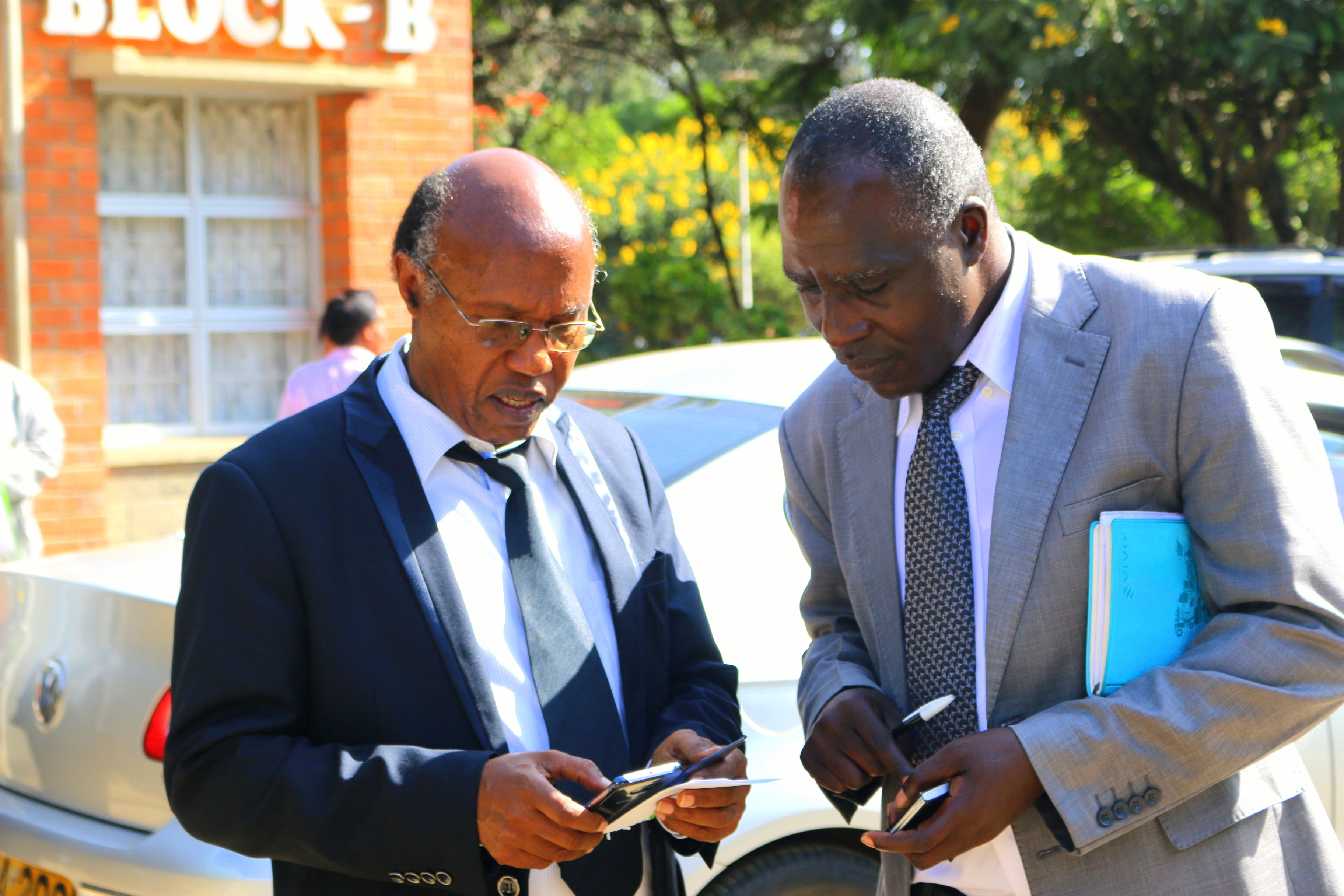
Your proudest achievement in the University?
We saw the Department achieve full accreditation by the Commonwealth Association of Architects and thereafter grow into a Faculty, and by the time I left to pursue my PhD, we had achieved the highest complement of PhDs in a School of Architecture in the whole of Africa. This was because we worked as a family, and we were willing to make sacrifices for one another.
What would you do differently if you were to have your JKUAT experience once again?
My stay at the University has been a noble experience for me, and I would not change anything. Maybe a few improvements here and there, like increasing the amount of research work and publication of journals. This is very key in ensuring we continuously have refined levels of thought in all areas to guarantee sustainability and continuous creation of knowledge.
In your 30 years of Public Service, what has kept you going up to this far?
Born in 1959, I had an after taste of colonialism. Growing up in this environment, we were always reminded that our erstwhile colonial servitude was due to ignorance. Our education therefore became an extension of our self-determination. Culturally we were also trained that you have to be absolutely hardworking, and that life is a struggle. We were never given a choice about excellence. It was the only option on the table.
In all that you do, what’s the one principle you live by?
Service to other people. Traditional Africa is molded around service to other people. You derive your self-satisfaction from serving other people. My personal ambition is to live a positive mark in the life of everyone I get the privilege to interact with. The eternity you have in this life is assured through the younger generations. If I can impact upon someone so that years from now they can say I set my sights on the basis of what I heard from Mwangi, then I’d consider my life well-lived.
This far would you say you have accomplished your God-given purpose?
I can’t brag of perfection, but I have tried my best. Of course there are frustrations because you set targets and you don’t entirely achieve all of them. I can say God has been gracious and we have done a lot through the years across the continent, but there’s always more to be done. There’s always room for improvement.
What is your ultimate vision for the Ministry in your current position?
My ultimate vision, and what I daily endeavor to achieve is to ensure services are provided efficiently and through a process that is above board. In the end I want to see a total institutional transformation. I focus on motivating my staff to achieve their optimum, and to put in place sustainable and dynamically transforming standard operating procedures that can outlive all of us.
What’s your advice to the young generation?
I envision a young generation that has conviction and commitment. A young generation that doesn’t give up and has faith in themselves. A generation that doesn’t have an ‘open hand’ mentality, but people with conviction that they can go for it and get whatever they set their sights on.
Over the years, have you managed to balance your work and your life?
Let me first mention that ‘living’ is not just about having fun and laughing. That said, my life has not been all work and no play. Right now because of my age I can no longer go mountain-climbing, extensive travelling, playing squash and several other recreational activities I used to do, but I still take time off especially on weekends to just spend time with my family. Generally, I believe people should invest in creative leisure that builds value in us and in others. And of course ‘there is a time and season for everything_.’
What would you wish to see Universities across the country do better?
My first desire goes back to the importance of more research and publications. We must seriously anchor teaching on research, and not just that, but research that is documented and that has a strong local flavour or orientation for maximum relevance. The curriculum also needs to be anchored on the needs of the market. This means the universities need to have instruments of constantly assessing the direction our country takes to know exactly what is needed.
The other significant matter is the staff-student ratio. It is alright for everyone to access education, but education has a core objective, which is to refine you into a sellable competitive product. This cannot be achieved if we compromise on standards.
What’s the greatest lesson you’ve drawn from working outside the country?
Outside our borders we are really appreciated when it comes to productivity at the workplace, but it’s unfortunately a different story back home. In our country we have a pre-direction for criticism, and especially disparaging criticism. We tend to focus much more on the few negatives than the several positives. As a matter of fact if there’s anything I would change in this country, it’s the storylines we carry in our news. We haven’t learnt to appreciate ourselves sufficiently.
Any final sentiments?
We should stop underrating ourselves as Kenyans. Our country and by extension our continent incubates considerable creativity and great potential. Lastly, let us remember that with every privilege comes a responsibility, which makes it integral that we found our lives on sound morality. Don’t move on the path of egotism. You’ll be ashamed in the end.
‘Every person you meet is an example of what not to be or what to be’~Prof. Maringa.

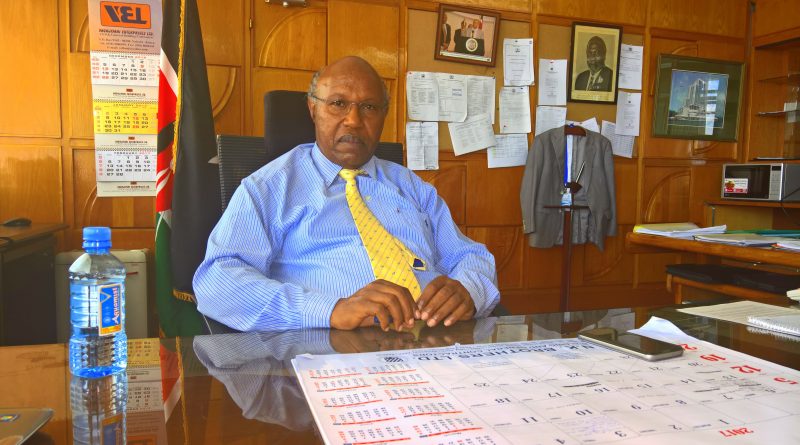
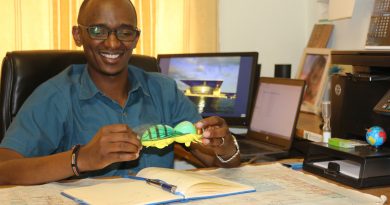
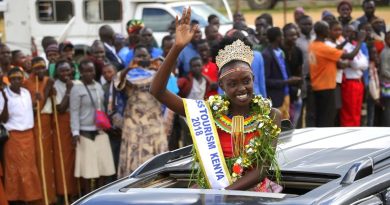
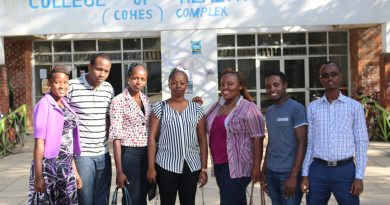
Pingback: JKUAT – Alumnus of the Week – STATE DEPARTMENT OF PUBLIC WORKS